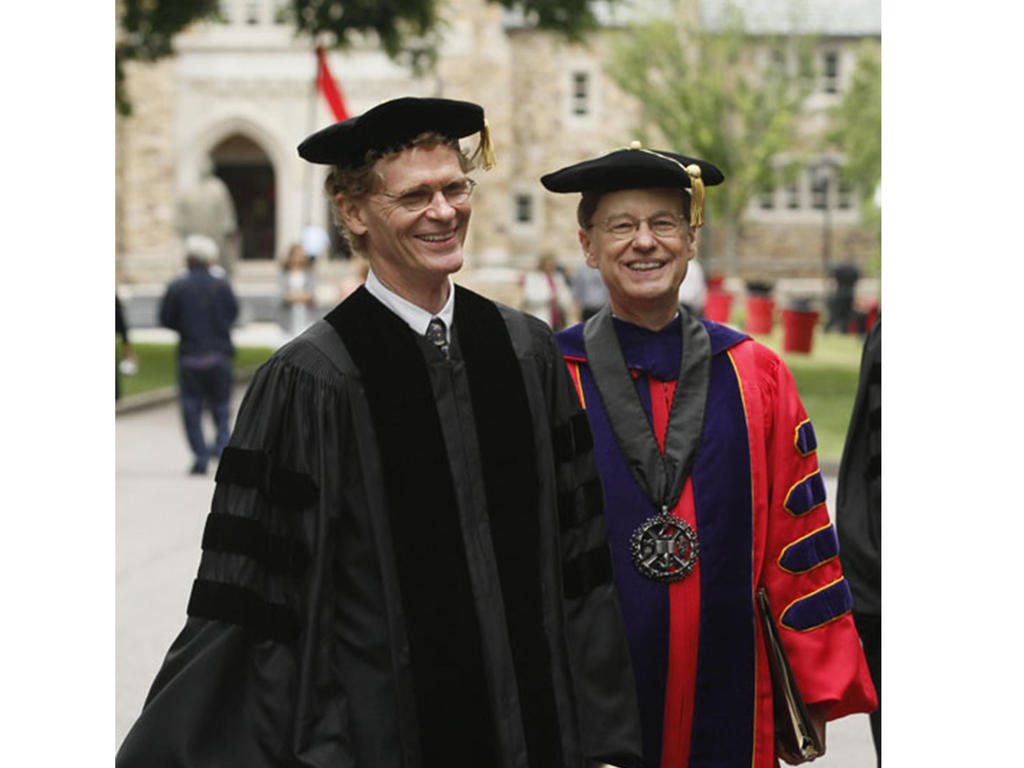By Lynn Conlee
The Fundamental Question of Metaphysics
“You hear remarks such as ‘Philosophy leads to nothing,’ ‘You can’t do anything with philosophy,’ . . . [G]ranted that we cannot do anything with philosophy, might not philosophy, if we concern ourselves with it, do something with us?”
--Martin Heidegger
Students in philosophy professor Kyle Grady’s existentialism class this fall were asked to discuss Martin Heidegger’s quote and to broaden its use of philosophy to the liberal arts—particularly in light of the critique being leveled in the ongoing national debate about the value of the humanities.
One student said, “I’m a chemistry major so, when my parents visited during Parent/Family Weekend, they asked why I was taking a philosophy class. I think that philosophy stretches my mind in ways chemistry doesn’t.”
Another commented, “If you are in pre-med, you have a defined track that you follow: pre-med, med school, doctor. But with majors like English or philosophy, you can go anywhere. I think those majors open possibilities rather than narrow them.”
Stretching the mind. Opening possibilities. The students’ comments reflect those of the nine contributors in this issue of Rhodes magazine, each of whom graciously agreed to submit an essay responding to a quote about perceived deficiencies in the liberal arts, especially in today’s economic climate.
We hear from alumni who, by their own examples, challenge the assumption that a liberal arts education does not make for a good career. Tell that to a lawyer turned Episcopal priest; the national secretary of Phi Beta Kappa; the founder of a global seed bank; or a young art major alumnus with his own small art space and a faculty position at his alma mater.
Defying the notion that a liberal arts education is the bastion of the elite, the Rhodes Student Government president writes about her road to Rhodes and the January 2015 lecturer for our Communities in Conversation series elaborates on his role teaching the liberal arts to working-class students.
And finally, three faculty weigh in on the important role that colleges like Rhodes can play in the lives of students who leave college prepared to go out into the world and become what Heidegger describes as thinking, meditative beings.
Collectively, the essays reaffirm the many qualities a residential liberal arts education provides. Or, to paraphrase Heidegger, they show what the liberal arts can do with us.
- No Magic or Mystery—Just Charity, Civility, and Integrity
- The Future of College: Not an Either/Or
- Equipped for Life With the Gift of Learning
- The Liberal Arts and the Fate of American Democracy
- Defining Success the Liberal Arts Way
- Integrative Learning and the Value of Liberal Arts Education
- Fleeing from the Liberal Arts? Not So Fast
- Examining Life Under a Broader Scope
- Richness in the Eye of the Beholder
